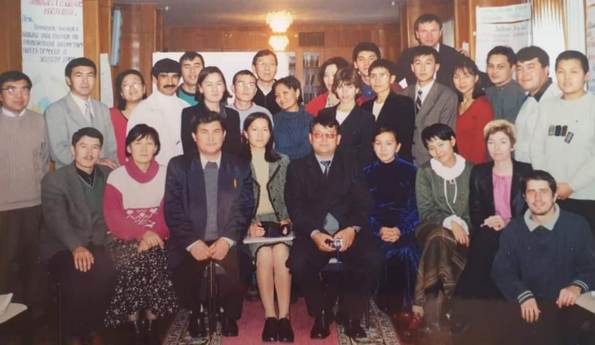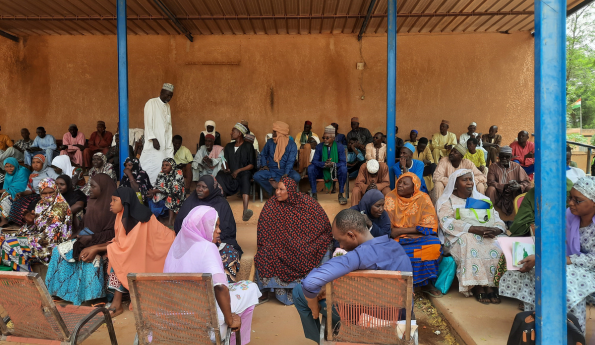By Jennifer Brookland
Maté Mint Sidi Ali never envisioned herself as a leader in health care. But when Counterpart International came to her rural Mauritanian village recruiting volunteers to serve as community health workers, she jumped at the chance.
She had seen too many of her neighbors suffer from malaria or fevers, and small children frequently had diarrhea from drinking contaminated water and from poor sanitation.
For many families in Mauritania, access to health care is a significant challenge. Health posts provide only basic services, and without vehicles, getting there can be a major hardship requiring an expensive hired ride or even an all-day trek on foot.
Many health problems go untreated, often becoming severe or chronic.
In honor of World Health Day, Counterpart is sharing Maté’s story as an example of health interventions that go well beyond the one-time treatment, medicine or meal and make the whole community stronger and healthier.
Through Counterpart’s USAID-funded Community Action, Nutrition and Livelihoods Project, Maté got the chance to participate in a four-part workshop on basic preventive health care, disease management and peer health education methods.
She began helping her neighbors adopt healthy behaviors and provided them with treatment for basic ailments.
Counterpart provided Maté with a basic medical kit that allows her to test for and treat malaria, provide oral rehydration salts and antibiotics, and diagnose and treat simple medical issues.
Today, Maté leads groups of her peers in health education sessions.
These sessions have helped the community recognize the symptoms of common diseases, improve hand-washing and hygiene practices, identify the signs of high-risk pregnancies, and practice breastfeeding and better child nutrition.
According to Maté, her community now has better disease prevention and management overall, reducing the incidence of ailments that previously plagued the village. She noticed reduced malnutrition rates in children – which she measures during regular community-wide growth monitoring and promotion sessions.
“Bringing health care directly into the community has had an enormous impact on community health,” she says.
By creating community health leaders equipped with tools and knowledge, the 160 communities in Mauritania that benefit from this program are able to take charge of their own healthcare needs and continue to expand the number of community leaders capable of responding.
It is the kind of health work that Counterpart is doing in communities across Africa.
Its Multi-Year Assistance Program in Mauritania screens children for malnutrition but also trains local health workers to monitor their progress and provide referral services for those in danger.
In Niger, 9,725 children are receiving treatment for malnutrition and nearly 14,000 children are receiving needed medicines.
But these efforts are based in the community: 90 health-extension workers trained by Counterpart provide health and nutrition services once a month to remote villages, and staff members at five integrated health centers are learning to detect and treat malnutrition.
A project in Cameroon dishes out food rations for school children, but more importantly, engages teachers, parents and community members to grow sustainable gardens whose produce can take the place of donated food and bring in profit to boot.
A similar initiative in Senegal, the Yaajeende Agriculture and Nutrition Development Program, facilitates community-level food utilization to reduce the rates of stunting and under-nutrition in children.
Participants grew 138 metric tons of vegetables in gardens they established and maintain, 45 percent of which they ate and the rest of which they sold.
Counterpart makes sure that the local people and organizations it works with have the resources and knowledge they need to make health and nutrition a community affair.
That approach creates a healthy sense of ownership and commitment that drives communities to carry on the work on their own, no doctor’s orders necessary.




